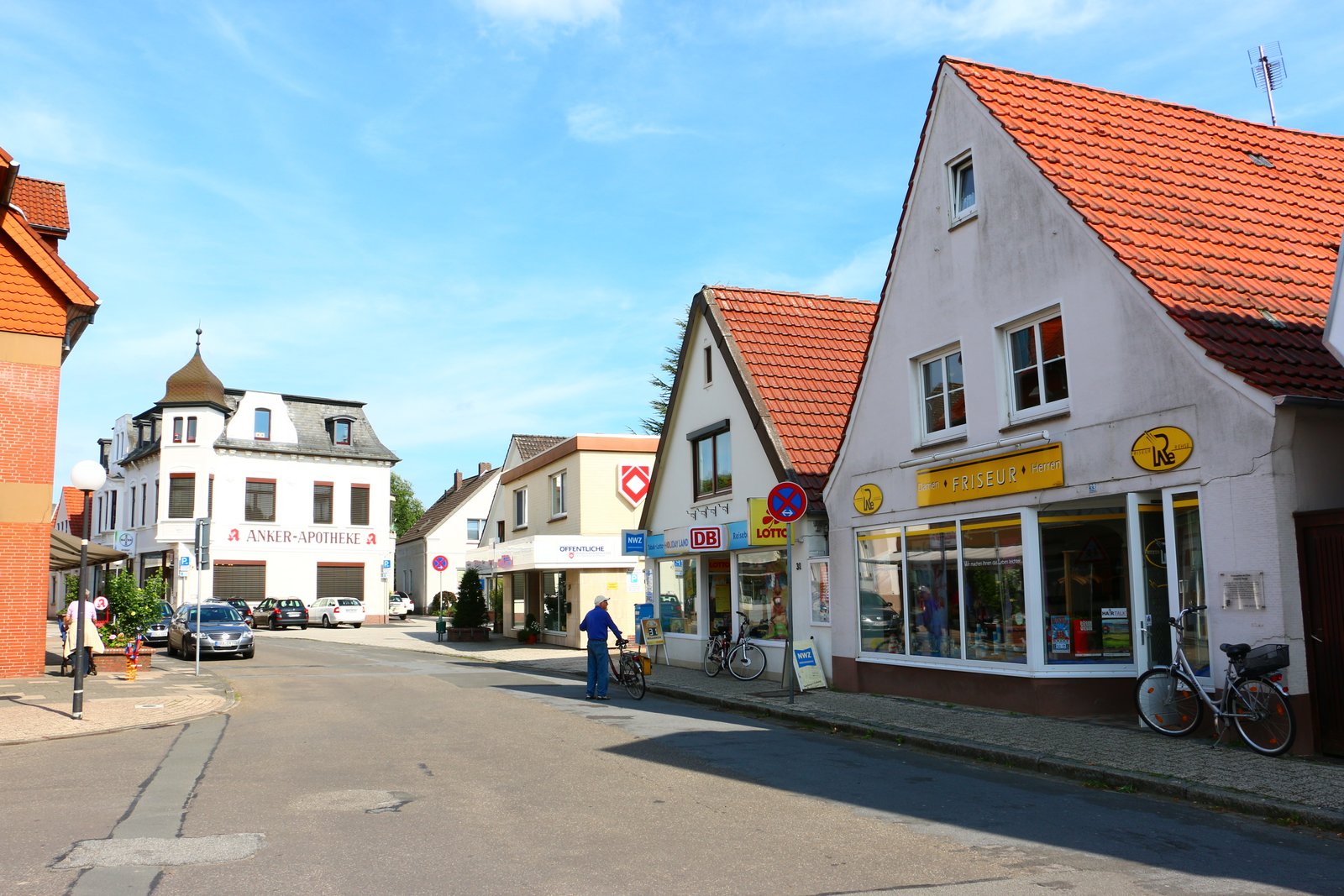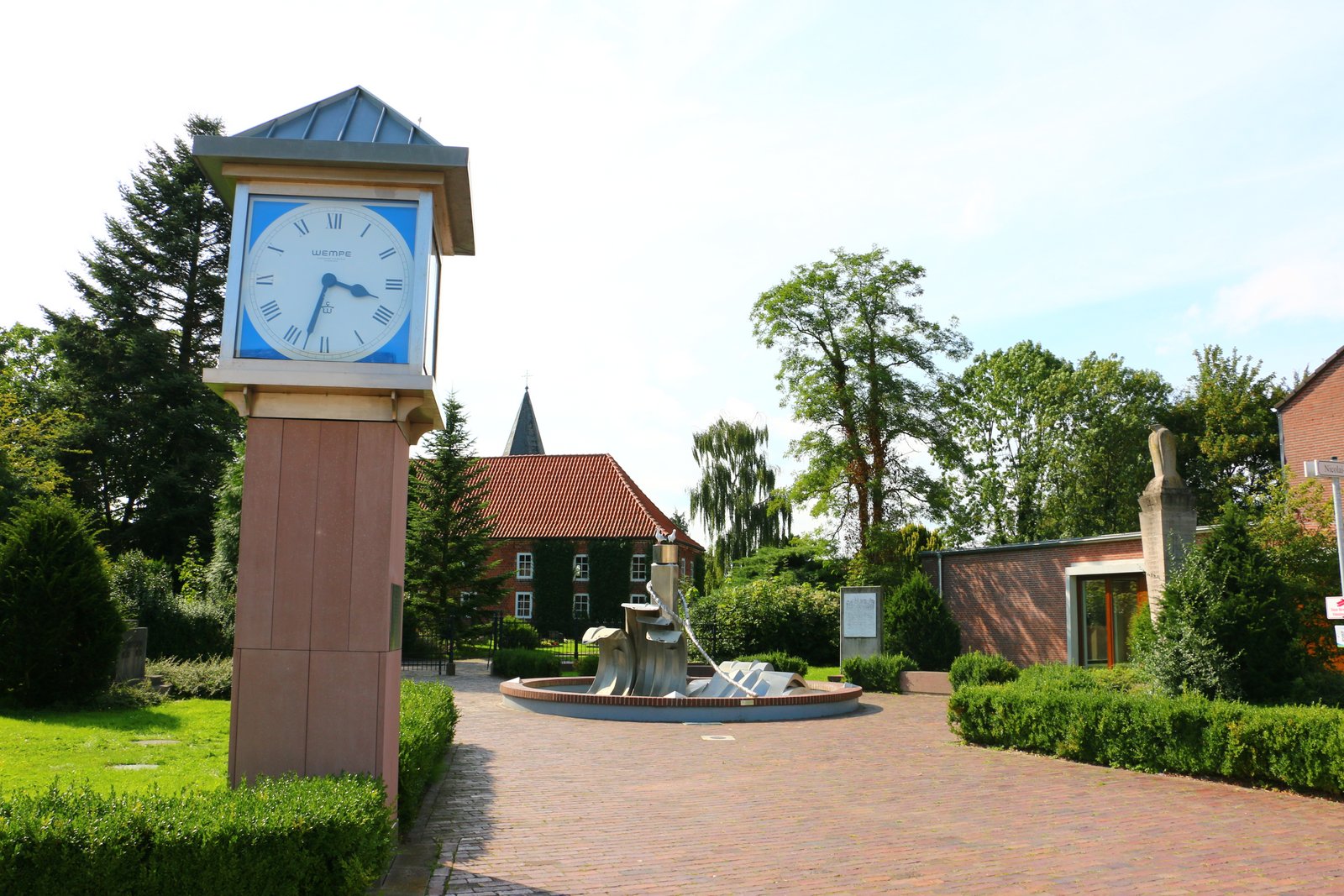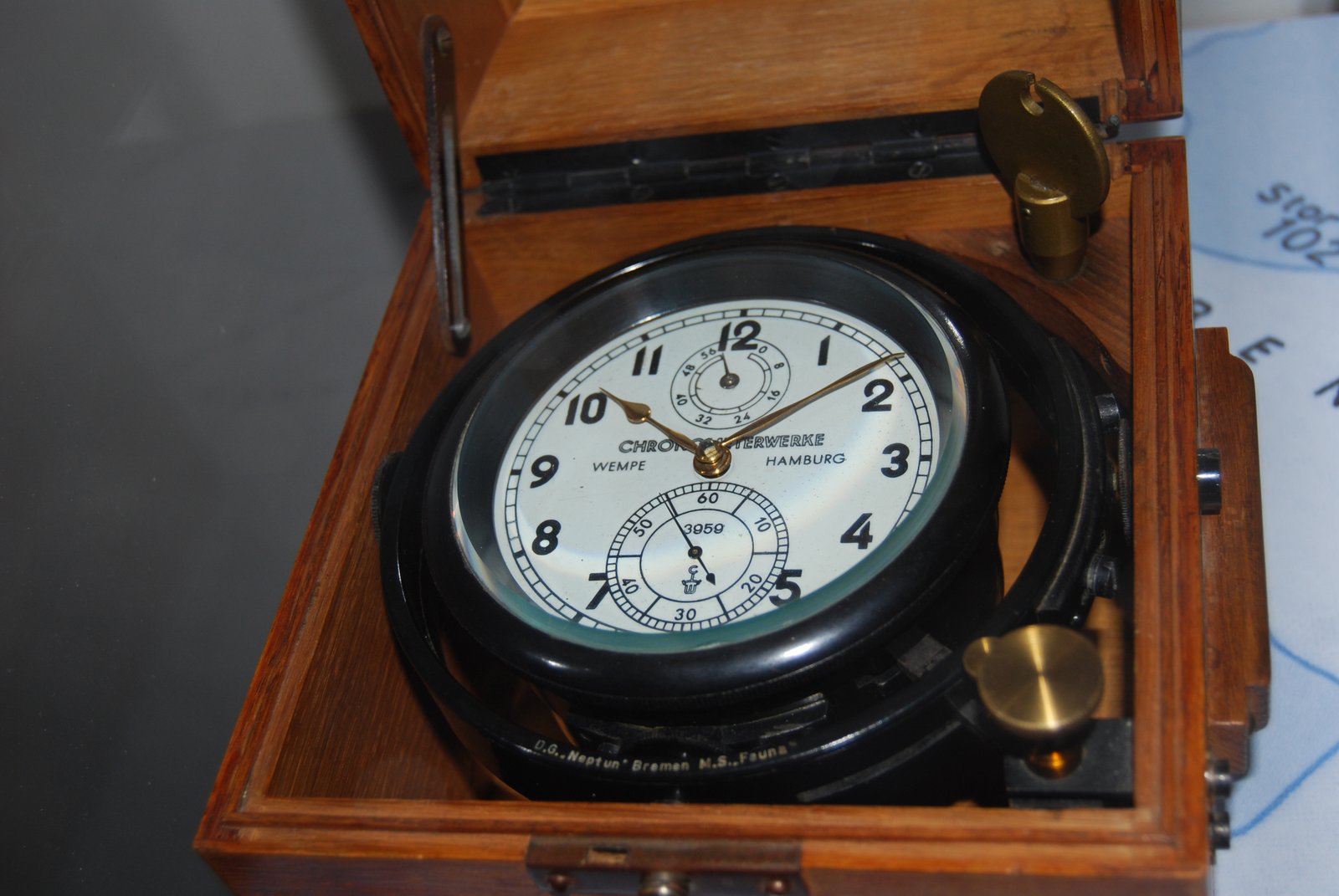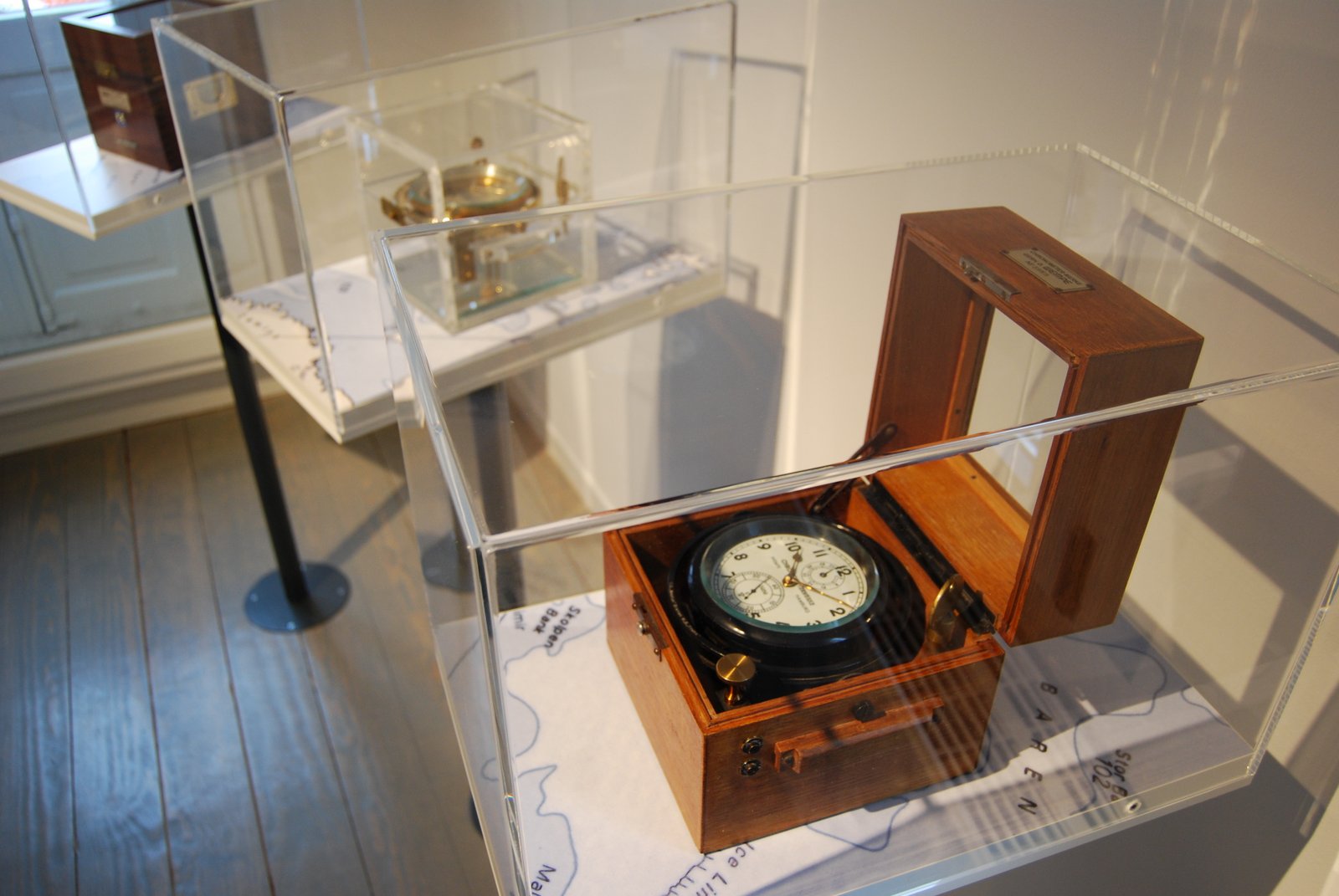
Bewerten
c3062fdf-4bc4-48c8-8c40-7f78913d4389|0|.0|96d5b379-7e1d-4dac-a6ba-1e50db561b04
Gerhard Diedrich Wempe opened a shop in the street Steinstraße in Elsfleth on the 5th of May 1878. Thereby, the clockmaker Wempe, who was barely 21 years old, laid the foundation for an enterprise which now has its central domicile in Hamburg, four generations later. Moreover, Wempe has offices in such prime locations as London, Paris, New York and Peking. Particularly in the shipping industry, the production of very precise timing devices, so-called chronometers, was a most significant part of the business. These were utilized to acquire an accurate determination of the ship´s position at sea- Today, these instruments are eagerly desired by collectors. The Maritime Museum “Haus Elsfleth” also has additional information pertaining to the history of Wempe and the importance of chronometers for navigation at sea.
The Beginning in Elslfeth
 Wempe clock at the
Wempe clock at the
Nicolai-Platz
In his young days, Gerhard Diedrich Wempe lived in the house of his father Gerhard Heinrich Wempe, Grüne Strasse 7. Following his apprenticeship in Oldenburg at G. Wiebking, a manufacturer of clocks for royal clientele, G. D. Wempe started his own business with barely 21 years of age, Steinstrasse 17 (today 33). That was on the 5th of May 1878. The house belonged to his aunt, Caroline Menke, the sister of his mother. The young entrepreneur had only 80 Marks in his pocket. In spite of initial financial and logistical disadvantages in his branches in Oldenburg and Hamburg, Gerhard Diedrich Wempe was able to lay the cornerstone of a German corporation which is now in its fourth generation.
After the establishment of the company in Elsfleth, the business relocated its main office to Oldenburg in 1894. In 1907, the first branch was opened in Altona. The business later focused its efforts exclusively on Hamburg. In 1914, the company already had four locations of its own in the Hanseatic City along the Elbe.
The company headquarters in the Steinstrasse and the public clock at the Nicolai-Platz are reminders of the historical ties of the worldwide enterprise Wempe to Elsfleth.
Maritime Significance
 Wempe chronometer at
Wempe chronometer at
"Haus Elsfleth"
The calculations made in the astronomical navigation for the purpose of determining the longitude, and ultimately the position of the ship at sea, could only be made in the wake of the development of precise and reliable chronometers. In 1769, John Harrison of Britain succeeded in producing the first portable ship chronometer which functioned – despite the impact of ship movements, temperature and air pressure fluctuations – accurately. The development revolutionized the shipping industry.
In 1905, at the behest of ship owners in Hamburg and Bremen, the chronometer manufacturing company of Ferdinand Dencker was founded in Hamburg. This has been a subsidiary of the Gerhard D. Wempe KG. since 1938.
The chronometer factories were significantly expanded during the Second World War, given that the demand for onboard clocks and chronometers, in the air and at sea, steadily increased. As of 1949, the corporate factories destroyed during the war were built up again, parallel to the regeneration of the maritime industry in Germany as well as Japan.
In light of the development of the quartz technology and of the satellite-based navigational systems such as GPS (Global Positioning System), mechanically functioning chronometers were less and less importance in the shipping industry. Nevertheless, the highly precise instruments are still being sought after by professional and private mariners. Today, the long-established. Hamburg-based company is managed by Hellmut Wempe and his daughter Kim-Eva Wempe, and it has 20 branches in Germany as well as in New York, London, Paris, Vienna and Madrid.
Experiences in the museum
Until the introduction of GPS, highly precise chronometers were indispensible for navigation at sea. Only clocks that can be set to the precise second and allow for an exact measuring of time may be called chronometers.
Track the dramatic consequences of even small deviations in time on a ship’s course at the simulator in Elsfleth House and learn the connection between determining time and position.
Maritime Museum - "Haus Elsfleth", Weserstraße 14, 26931 Elsfleth - 1st floor
